According to the National Survey of Family Growth, Infertility affects over 7.3 million individuals or 1 in 8 couples in the United States. While there are numerous conditions that may cause or contribute to a diagnosis of infertility, a poor diet is a growing and significant factor that couples can address.
Factors like age and genetics cannot be controlled, but controlling the foods you consume is something you can do yourself, without medical procedures, to help improve your fertility. Dr Sharara created The Infertility Diet (TID) to educate couples about this very important topic
As a woman contemplates conception, it is recommended that she starts consuming foods high in certain vitamins:
· Vitamin B supports the release of an egg and promotes implantation Zinc can help with cell division and progesterone production
· Vitamin C is found in high quantities in the follicle after the egg is release and could play a role in progesterone production
· Essential Fatty Acids (EFA’s) promote blood flow to the uterus and support the opening of the follicle to release the egg
It is also recommended to eat the following types of food:
1. Leafy greens
2. Whole Grains
3. Eggs
4. Meat
5. Fish (or fish oil supplements)
6. Drink LOTS of water. Water can transport hormones and develop follicles. It also thins out cervical mucus, allowing sperm to reach the egg
7. Stop all processed food and avoid foods high in sugar
Dr. Sharara, the Founder & Medical Director at the Virginia Center for Reproductive Medicine understands the road to parenthood can be emotional and costly. To support and guide couples on their journey of trying to conceive, he created an app called “The Infertility Diet.”
The App shows users how a proper diet can improve their chances of naturally conceiving a healthy baby.
We invite you to learn more about the app http://theinfertilitydiet.com/
